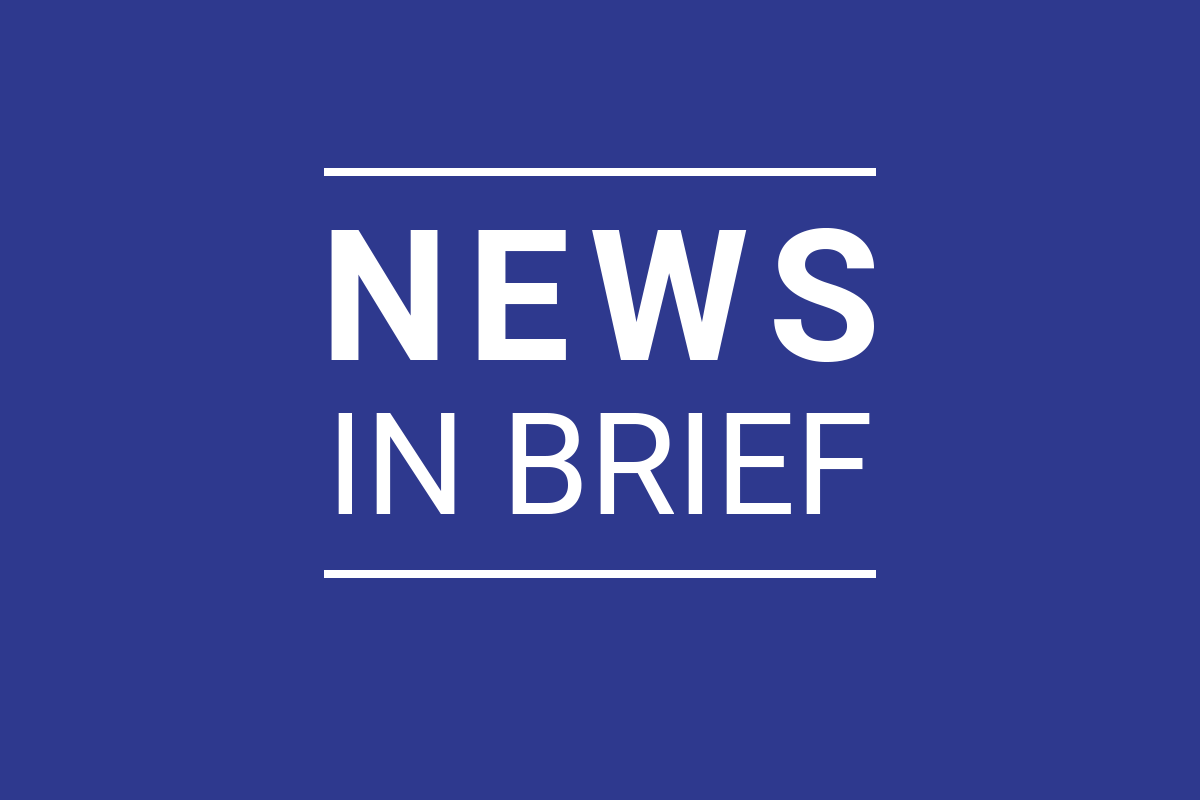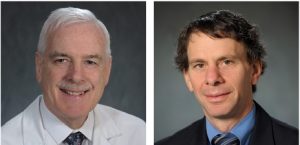
Fall 2024 Group Meeting Focuses on Real-World Data, Innovation, and Health Equity
November 25, 2024
News in Brief, December 2024
December 23, 2024From the Co-Chairs, November 2024


By Peter J. O’Dwyer, MD (left)
and Mitchell D. Schnall, MD, PhD
We thank all of you who attended the Fall 2024 Meeting of ECOG-ACRIN in Fort Lauderdale. Beginning with the assembly of the Edith Mitchell Travel Scholars in a vibrant Health Equity Committee Session and culminating in an inspiring series of talks in the General Session, the meeting accelerated the momentum of our group and its dedication to curing cancer in the broadest population, and to alleviating the suffering of patients with cancer. Our program was somewhat constrained by its scheduling in an election week, and the need to allocate time for grant preparation. Nonetheless, the committee meetings were focused and productive. The Group membership has no shortage of ideas, and as always, a wave of study proposals will follow. In addition, the range of study types has expanded, affording additional opportunities for early- and mid-career investigators. Two of these were the basis for presentations in the General Session.
The first, from Dr. M. Shaalan Beg, formerly of UT Southwestern Medical Center and now senior advisor for clinical research to the NCI Director, focused on elements of trials that are designed to make them simpler, easier to conduct, and therefore more feasible in the widest range of institutions. He highlighted many of the challenges that the oncology clinical trial infrastructure is facing and proposed a couple of solutions. These included deploying methods to improve clinical trial access and supporting initiatives to standardize data capture and sharing. In a separate activity over the past several months, ECOG-ACRIN has participated in a working group at Friends of Cancer Research (Friends) to expand and guide the development of pragmatic elements in trials–these are not an all-or-none model, and pragmatic elements can be incorporated in even our most complex studies. The working group discussions culminated in a white paper released in early November that described three post-marketing settings in which such trials could advance patient treatment.
The second, from Dr. Marie Bradley of FDA, contextualized the FDA’s interest in understanding how well advances in treatment from our clinical trials’ population translate to efficacy in an unselected population in the real world. She detailed four projects funded by FDA to address this question in various ways, including the ECOG-ACRIN Real-World Data registry study PrE1702. Dr. Bradley laid out the considerations, rooted in epidemiological principles, by which the FDA reviewers assess the resulting real-world evidence in concluding that there is patient benefit. The study principal investigator, Dr. Suzanne Cole, presented the trial in various committee sessions at the meeting, and there is substantial enthusiasm for participation. The study is quite different from a therapeutic trial: in fact, it is designed simply to collect data on patients treated with osimertinib (with or without chemotherapy) for EGFR-mutated non-small cell lung cancer, and so has a minimal footprint in our institutions and practices, but great impact in terms of our research. As we have mentioned, this is the route to learning from 30% of cancer patients, not just the 3-7% now represented.
We also draw your attention to an ECOG-ACRIN study presented at the ESMO Congress 2024 in September. Dr. Nabil Saba of Emory University presented the results of EA3163, a randomized phase 2 trial of chemotherapy before surgery and radiation or surgery and radiation alone for patients with nasal and paranasal sinus cancer. Although the study did not complete accrual due to the rarity of this disease subtype, the results were striking: patients receiving chemotherapy before surgery had a 50% chance of structure preservation whereas patients having surgery had only a 15% chance of preserving both the eye and the base of the skull bone. Per Head and Neck Committee Chair Dr. Barbara Burtness, future trials will need to test whether modifying the choice of chemotherapy or adding immunotherapy could improve the change of organ preservation.
Finally, we are happy to alert our investigators that ComboMATCH, which is continuing to accrue quite well, has now re-opened for new treatment arm ideas. Please be in touch with Dr. Kristen Spencer or Dr. James Ford with questions. We are eager to contribute to the success of this trial by bringing novel combination regimens to be tested in molecular subgroups of cancer.
Read the November 2024 issue here.
![ECOG-ACRIN logo[19516]275×75](https://blog-ecog-acrin.org/wp-content/uploads/2021/03/ECOG-ACRIN-logo19516275x75.png)
